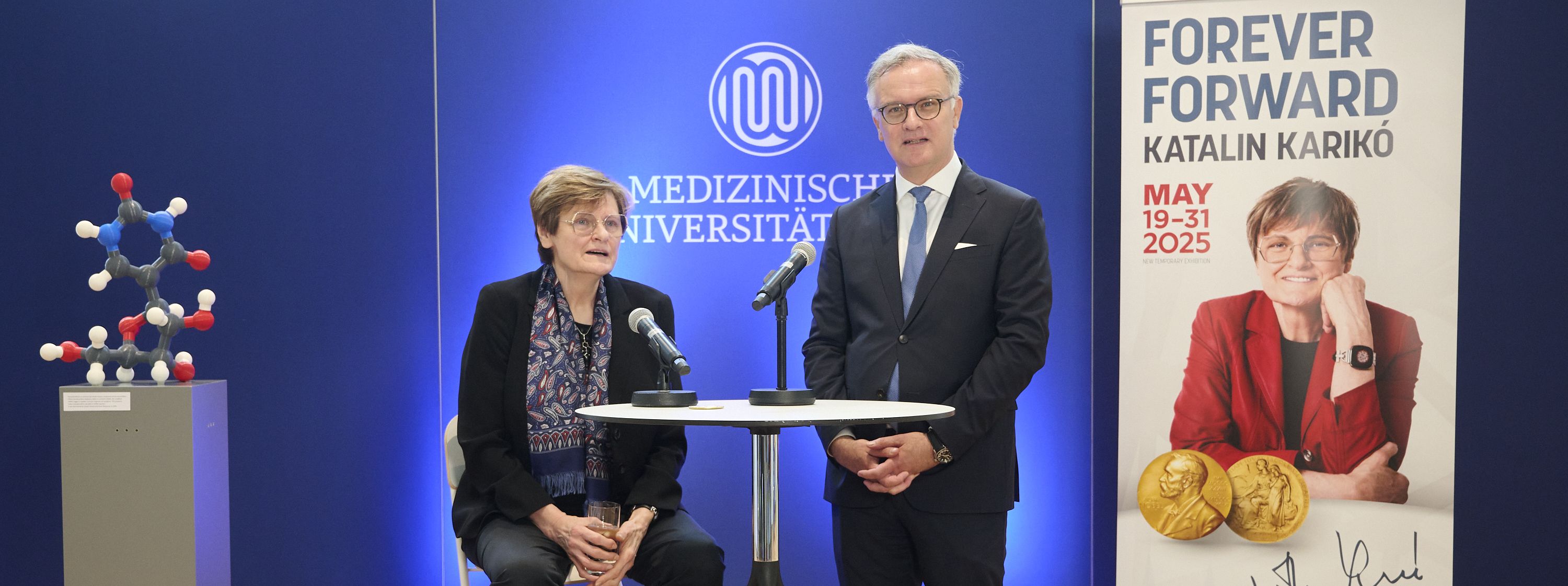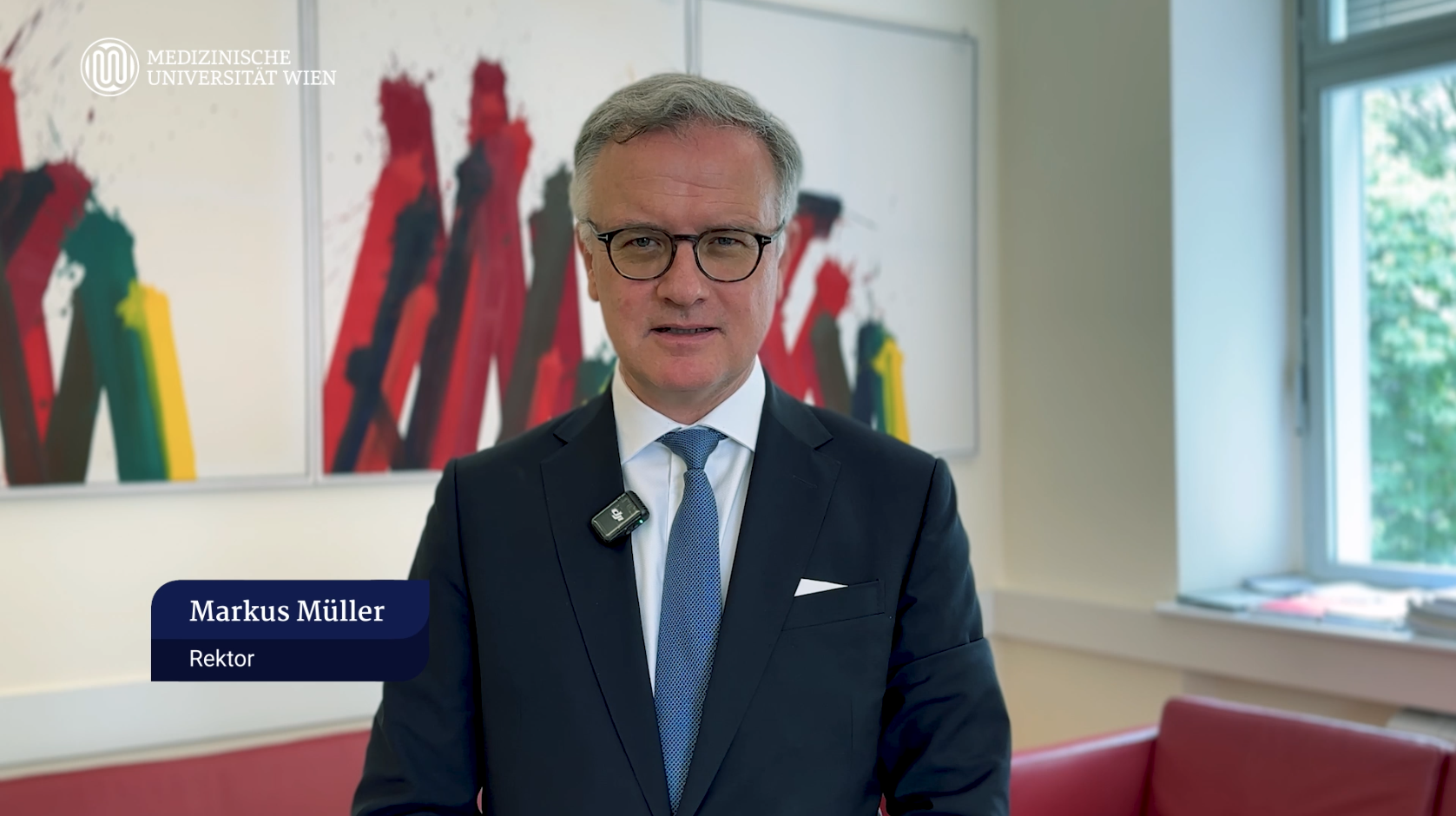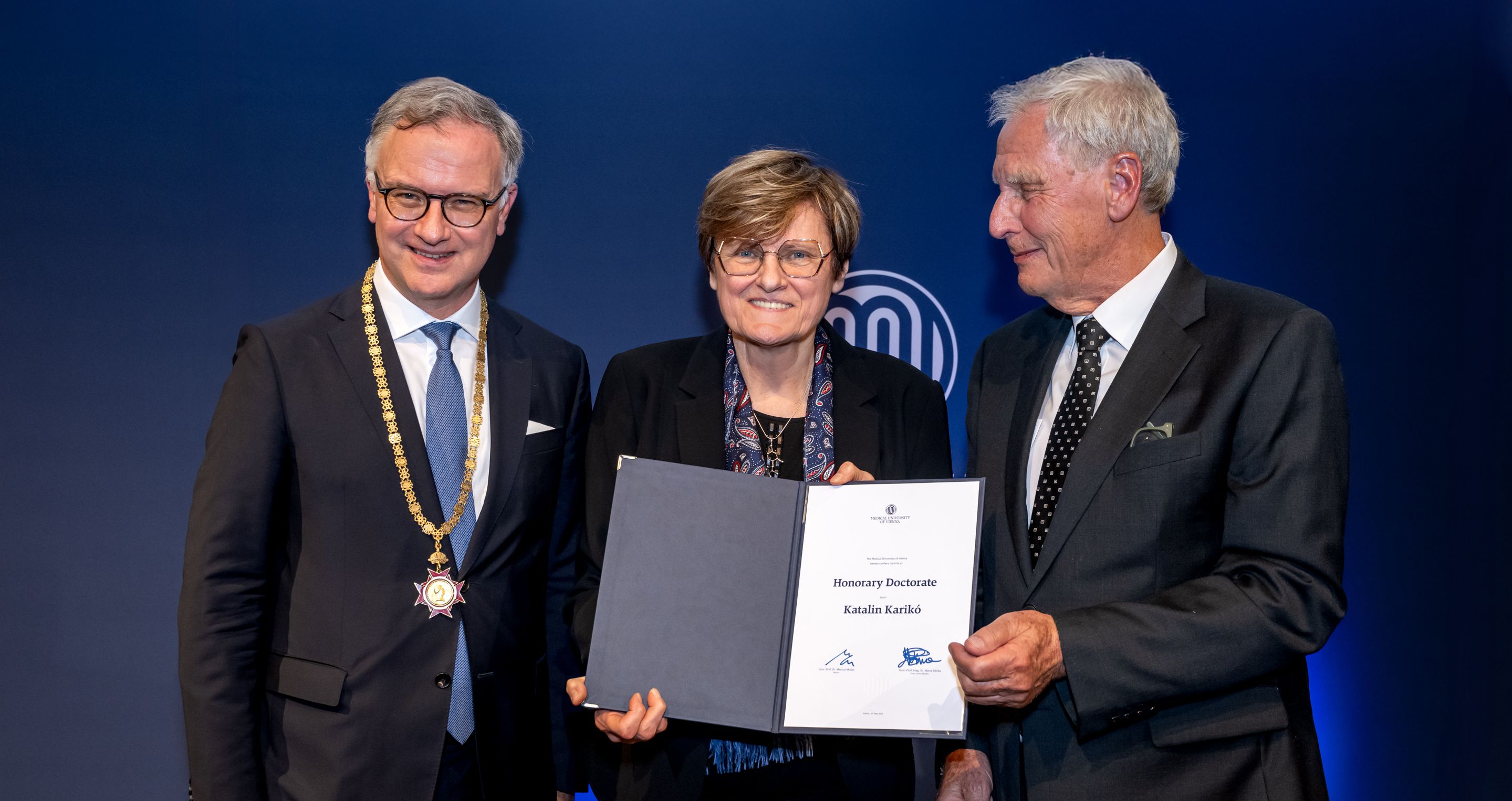
(Vienna, 19 May 2025) The Hungarian-American biochemist Katalin Karikó made a significant contribution to the development of mRNA technology, which forms the basis for modern vaccinations and therapies. In 2023, Karikó was awarded the Nobel Prize in Physiology or Medicine together with Drew Weissman. During a visit to the Medical University of Vienna, she provided insights into the potential applications of the technologies she helped develop.
We are delighted to welcome Katalin Karikó, a pioneer of medicine, to MedUni Vienna," said Markus Müller, Rector of MedUni Vienna. "Katalin Karikó's research on mRNA has fundamentally changed medicine. Her findings open up completely new possibilities for the treatment of diseases such as cancer or rare genetic disorders and form the basis for a new era of personalised medicine."
Katalin Karikó pointed out the long road of research before MRNA technology actually reached clinical application. "The success of COVID-19 mRNA vaccine is the result of 60 years of mRNA research, which has opened the door for future therapeutics to treat patients with unmet medical needs." Today, she passes on her experience in academia to the younger generation: "It is important for the students to learn how to handle stress and stay focused, so they can live a happy and productive life."
During her visit, Katalin Karikó was awarded an honorary doctorate from MedUni Vienna and the Semmelweis Medal from MedUni Vienna. In a guest lecture, she discussed the potential applications of the technologies she helped to develop. Katalin Karikó also met with PhD students from MedUni Vienna to exchange expertise.
About Katalin Karikó
The Hungarian-American biochemist Katalin Karikó gained international recognition for her pioneering research into messenger RNA (mRNA). She was born in Hungary in 1955 and completed her doctorate at the University of Szeged. After moving to the USA, she worked for decades at the University of Pennsylvania. Together with Drew Weissman, she discovered a way to modify mRNA so that it is tolerated by the human immune system - a key innovation for modern mRNA vaccines. She has received numerous awards for her achievements, including the Nobel Prize in Physiology or Medicine in 2023. Karikó is now recognised worldwide as a pioneer of mRNA technology and continues to be involved in biomedical research.

After activation, data will be sent to YouTube. Further information here: Data protection
